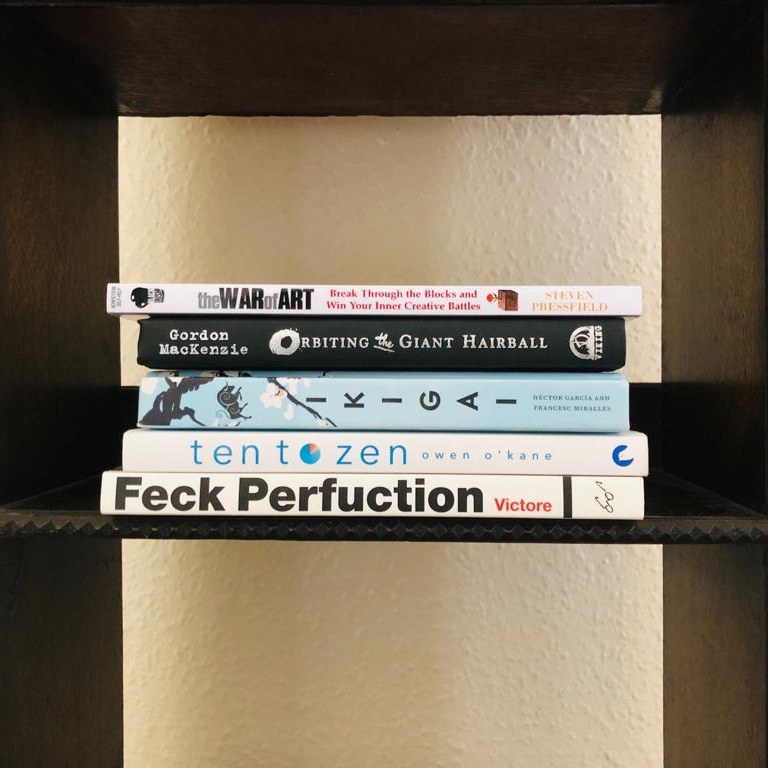Five books to read when you've been made redundant...
… which will change your life
I’m a book addict. I’ve always loved books. I read all the classics back in the day, Feel the Fear by Susan Jeffers, How to win friends and influence by Dale Carnegie, The Empty Raincoat by Charles Handy, The Pursuit of Wow by Tom Peters, I could go on. I won’t.
All of these are as relevant today as they were way back then.
Susan Jeffers ‘feel the fear and do it anyway’ is still quoted throughout meeting rooms, conference centres and business retreats throughout the land.
Does it mean that we haven’t moved on, we haven’t progressed, or does it mean that fundamentally as humans we are pre-programmed, from the start of time, to survive over and above thrive. Our basic need for flight or fight. And that is what dedicates the majority of our decision making and the path we choose to take.
As Carol Dweck describes in her book about fixed v growth mindset “no matter what your ability is, effort is what ignites that ability and turns it into accomplishment.”
In a fixed mindset, people believe their qualities are fixed and therefore cannot change. People document their intelligence and talents rather than working to develop and improve them. They also believe that talent alone leads to success, and effort is not required.
In a growth mindset, people have an underlying belief that their learning and intelligence can grow with time and experience. When people believe they can get smarter, and that their effort has an effect on their success, they put in extra time, leading to higher achievement.
How many people do you know that aren’t happy in their job, aren’t happy with their situation, and when you ask ‘what would you like to be doing’? they light up and share their dreams, ideas, hopes but with an air of sorrow that it will never happen. They believe that their lot is their lot.
So when redundancy comes along, it’s a sign. And it is time. Their lot wasn’t their lot after all.
Back to the 5 books. Where do they come in?
Well. They can change your life. They have a huge amount of knowledge and wisdom in them. If you were to spend an hour of time with the author it would cost you a whole lot more than the £9.99 you’ve just spent on their 80,000 words of wisdom. So if all that knowledge and wisdom is out there, why is it still so hard to act?
Because we have to know what to do with it
Because we have to believe we can do something with it
Because we have to do something with it. We have to. No-one else.
And that’s maybe why the coaching and mentoring industry is thriving. We don’t quite believe we can do this ourselves. However, we know we have to, no-one is coming to rescue us.
So read the books. Listen to the webinars. Get people around you to support you all the way.
And then take action.
Do what the book says. Follow the action.
And keep going. Always.
What is the alternative?
(And you do have time. You always have time to do what you want to do).
Here are the 5 books (in my opinion) that will change your life, would love to know your thoughts, your favourite books, the books that changed your life.
Five books which will change your life (if you want them to)
Ikigai - The Japanese Secret to a long and happy life by Hector Garcia and Francesc Miralles
“We have to learn to turn off the autopilot that’s steering us in an endless loop. We all know people who snack while talking on the phone or watching the news. You ask them if the omelet they just ate had onion in it, and they can’t tell you,”
‘Ikigai’ is a sense of purpose, a reason to jump out of bed each morning. The book takes you through an experience of questioning and provoking ideas to help you discover your ‘ikigai’ . The four circles of doing what you love, what you are good at, what you can get paid for and what the ‘world’ needs. Ikigai is that sweet spot in the middle when these four questions are all answered and become what we do every day.
“Be led by your curiosity, and keep busy by doing things that fill you with meaning and happiness.”
I run a workshop with a partner Amanda Paradine. Amanda takes the group through a concept of following their curiosity. Introducing this concept to a group of people who have just been told they’ve lost their job can sometimes feel like walking into a meeting in Brussels with list of stuff ‘I’d really like’ but stuff ‘they don’t really want’ (I imagine) . However, every time Amanda starts to talk about finding answers through following your energy, and tuning into to where your mind might be curious, it’s the moment you can see lights go on. People physically change how they are sitting. They lean forward. They start to ask questions.
Being curious is a gift we all have. We don’t have to declare it to the world, we can be curious without anyone knowing. As curiosity grows to an idea and we start to talk to people and take action, then that’s when flow and passion will be the energy that will help you succeed, and find your Ikigai.
“There is a tension between what is good for someone and what they want to do. This is because people like to do things as they've always done them. The problem is that when the brain develops ingrained habits, it doesn't need to think anymore. Things get done very quickly and efficiently on automatic pilot, often in a very advantageous way. This creates a tendency to stick to routines, and the only way of breaking these is to confront the brain with new information.”
2. Orbiting the Giant Hairball - A corporate fool’s guide to surviving with grace by Gordon MacKenzie
You might want to return to corporate life. You might’ve confirmed you like corporate life and all the benefits it has to offer. But the joy of taking time to think and reflect means you have a difference perspective when you return to the office. Gordon’s book is a brilliant challenge of how we can navigate around corporate joy, and not get dragged into the politics and institutionalised psyche.
“To be fully free to create, we must first find the courage and willingness to let go:
Let go of the strategies that have worked for us in the past...
Let go of our biases, the foundation of our illusions...
Let go of our grievances, the root source of our victimhood...
Let go of our so-often-denied fear of being found unlovable.”
As well as it being a book full of clarity and ‘moment's’, it’s beautiful. Beautiful to look at and full of illustration which will make you smile - even though the thought of hairballs make you want to wrench.
Anyone who can include the word ‘hairball’ in a book title and make it powerful and beautiful gets my vote!
3. Ten to Zen - Ten minutes a day to a calmer, happier you by Owen O’Kane
“Think you are too busy to calm your mind? Think again.”
There are many mind books out there. I found Owen’s book the calmest to read, the easiest to follow, the simplest to implement. In a time when you might not be in the mood for ‘all that zen shit’, you need it most.
We can all find 10 minutes every day. 10 minutes to do some clearing out. If you can find 10 minutes every morning then it’s pushing the ‘reset’ button so you get off to the best start to your day.
Owen’s book is based on his experience as a psychotherapist and his years of palliative care, which has influenced how he works and how he views life.
Read this book to learn
How to settle your mind
How to handle dealing with stress
How to restructure unhelpful patterns of thinking
When you loose your job your mind fills up with stories and thoughts. Most are completely useless in helping you achieve your next move. Your mind worries, gets cross, feels shame, feels guilty, feel embarrassed, tells you you aren’t good enough. None of this helps your plight. Create time to clear out noise and make room for supportive, progressive thoughts.
4. Feck Perfuction - Dangerous ideas on the business life by James Victore
“Should you strive for excellence? Of course. Pay attention to detail? Yes. But never let ‘perfect’ stop progress. Done is better than perfect.”
James takes on those fear demons head on. He doesn’t mess about. You’ll read exactly what you are thinking. You’ll get answers to why things aren’t moving or progressing for you. And as the title suggests James encourages you just to get on with it, shake off perfections and move forward.
I’ve always found the notion of perfection uncomfortable. Perfection is always in the eye of the beholder. A notion of perfection is just your own interpretation of what you think a standard or expectation should / will be. You will never really know what ‘ perfect’ looks like for anyone else, maybe even yourself. I’m not sure I would call myself a perfectionist but I do like doing good quality stuff. And I do start things with a notion of what I think people will expect. But it’s always exactly that - it’s a notion. Even when I work with clients and get a clear brief on what they expect, what they actually want, what they actually need, expectations can be vastly different.
How many times do you see someone sweating over getting Powerpoint slides immaculately formatted, overthinking ever detail, trying to anticipate answering every question the audience might want… only to get to the meeting to discover the audience wanted a discussion, they want heard, they want to ask questions. They didn’t want your Powerpoint. One’s persons perfect presentation is another person hour of broadcast hell.
Read this book. You’ll think differently about how you use your time, how you work on what you deliver and how you view your work and success.
Your perfection is not always going to help you deliver your best work. So Feck it.
5. The War of Art - Break through the blocks and win your your inner creative battles by Steven Pressfield
“Creative work is a gift to the world and every being in it. Don’t cheat us of your contribution. Give us what you’ve got”
Creativity is not exclusive to artists, actors and writers. Creativity is about free thinking. Allowing yourself to think about possibilities.
The book covers the Another Door philosophy of Hope + Ideas + Action in beautifully written, aspiring storytelling. It has a huge amount of optimism with an even larger amount of practical guidance to help you face fears, and identify reasons that are holding you back.
“There’s no mystery to turning pro. It’s a decision brought about by an act of will. We make up our mind to view ourselves as pros and we do it. Simple as that”.
It has a lovely blend of humour and urge to support you to take action. So it’s not ‘shouty’. But it is pushy. Because that’s sometimes what we all need. A bit of encouragement. A bit of a push.
What do you think?
What were the books that changed your life? I’d love to hear from you.
Eleanor
If you have just been made redundant or looking for your next career move, the Another Door community could be what you need.







